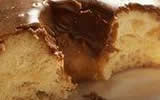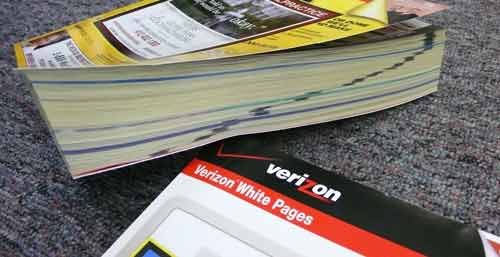::: center home >> being here >> last donut? >> getting somewhat real |
Not the Phone Book. The end of term is approaching and we are coming to the last of our informal reading group meetings. Those meetings have worked out rather well, I thought. The Official Charter is that we will read and discuss something a Fellow proposes. It must be no more than 12 pages, to make sure that everyone really reads it. Otherwise we leave the selection of the text entirely to the Fellow. "It can be 12 pages from the phone book," I now quip routinely. Fortunately no one has chosen the phone book, yet. At first hesitantly, Fellows propose some work in progress. Then, by decree, our discussions are supportive and helpful, as opposed to the combative mode that is the lamentable default in philosophy. This encourages more Fellows to bring papers in their early stages or ailing papers in need of therapy. A happy sense of community and common purpose develops. I take my turn in dispensing therapeutic advice. Eventually, someone looks at me and decides that it is time for me to be subject to therapy. That happened last week at the Church Brew Works in Lawrenceville, over the dinner that followed our last reading group meeting. I was lamenting the referees' handling of a paper when Susan said. "You know, I'd like to read that." My paper is on the problem of induction and a particular dissolution I'd found. Its fate at the hands of referees is something familiar to anyone who has tried to publish more than one paper. The reports come in. Sometimes they are so brief and dismissive as to be insulting. It is easy then to conjure images of a spiteful idiot that unaccountably the journal commissioned for a review. The truth is likely less colorful. Perhaps it is an overworked philosopher who didn't have time for the project and needed to find a quick reason to read no further. Others referees are clearly trying, but they somehow fail to connect with the paper at the outset. If you believe, as I do, that the paper really is rock solid, it is a dispiriting experience. You have been weighed and found wanting, but you don't know what is missing. It is a Monday afternoon and I took my place at the table with the Fellows gathered around. I circulated the referees' reports and I could see the Fellows reading them. There was an air of guilty curiosity, as if I'd offered them a private diary to read. Following our usual practice, one Fellow volunteers to read back what he or she thinks the paper is about. Susan stood to perform the function. "You are to remain quiet while I do this," she said, reminding me of the standard procedure, "Wait and let everyone speak and then find out what they think you said." It was a good exercise. As the representations of what I'd said unfolded. I kept my jaw clamped shut. The paper had used the word "Hume" incidentally only twice, yet here was a detailed exposition of how I'd misconnected with Hume's project. And then there was my material theory of induction. There is an old misreading that I thought I'd put decisively to rest. That misreading is that all induction is mere disguised deduction (enthymemes). It doesn't say that, but if you think that it does, little in the paper will work. I do think I write clearly. It is a little vanity that not even this reading group could shake. But the experience made clear to me that writing clearly is not enough. If your readers expect a particular claim in your paper, they will find it. As the meeting proceeded, I was allowed to speak and I could begin to assert what I thought I'd said. It was comforting then to find that the misreadings were not universal. Then we focussed more narrowly on positive recommendations. I will consistently say "dissolves" and not lapse lazily into "solves." The word "Hume" will disappear. More importantly, I will explain the material theory all over again and use italics to make clear that it is not the enthymeme theory. The meeting was last night. I've now spent the morning revising the paper. My back is stiffened, ready for the what the next round of referees may give me. John D. Norton |


